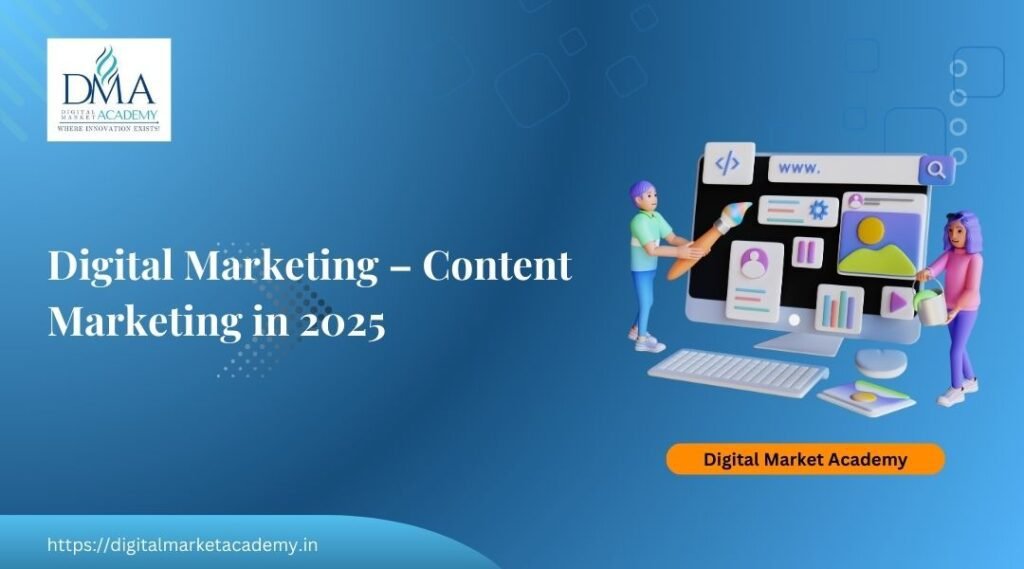
Content marketing is a rapidly evolving field. With new technologies, shifting consumer preferences, and the ever-changing landscape of digital media, content marketing in 2025 is set to look quite different from what we see today. Let’s break it down into key areas where we can expect to see changes:
Content Marketing in 2025
1. The Rise of AI and Automation
AI’s role in content creation will expand beyond generating text to include image and video creation. Platforms using AI to produce high-quality images, infographics, and videos will become more mainstream, empowering marketers with sophisticated tools to enhance their visual content without needing advanced design skills. Additionally, AI will enhance audience segmentation, providing deeper insights into consumer behavior and preferences, thus enabling hyper-personalized content delivery.
2. Voice Search Optimization
As voice assistants get smarter, understanding the context and nuances of voice queries will become crucial. Marketers will need to optimize their content not just for specific keywords but also for natural, conversational phrases. Creating content that answers questions directly and succinctly will improve visibility on voice search platforms. Furthermore, integrating voice search capabilities into websites and applications will become essential to stay competitive.
3. Video Content Dominance
Video content will continue to diversify with the advent of new technologies. Virtual reality (VR) and augmented reality (AR) videos will provide immersive experiences, allowing consumers to interact with products in a simulated environment. Interactive videos, where viewers can click on elements to get more information or make choices that affect the storyline, will create more engaging and personalized experiences. Moreover, shoppable videos will streamline the path to purchase, allowing viewers to buy products directly from the video.
4. Personalization and Hyper-Targeting
In 2025, personalization will be driven by real-time data and advanced algorithms. Dynamic content that adapts in real-time to a user’s behavior and preferences will become the norm. For instance, e-commerce sites will show personalized product recommendations based on browsing history and past purchases, while content platforms will suggest articles and videos tailored to individual interests. This level of personalization will enhance user experience and boost engagement and conversion rates.
5. The Impact of Augmented Reality (AR) and Virtual Reality (VR)
AR and VR will not only enhance product visualization but also revolutionize customer service and support. Imagine virtual fitting rooms where customers can try on clothes without leaving their homes or virtual showrooms where they can explore products in 3D. These technologies will also be used for virtual events and experiences, offering new ways for brands to connect with their audiences. For example, a travel company might use VR to give potential customers a virtual tour of a destination before they book their trip.
6. The Importance of Ethical Marketing
As consumers become more aware of privacy issues, transparency in data usage will be paramount. Brands that build trust by being open about how they collect, store, and use data will gain a competitive edge. This will involve not just compliance with regulations like GDPR but also adopting best practices in ethical marketing, such as respecting user consent and providing clear options for opting out of data collection. Ethical marketing will also extend to the content itself, ensuring it is truthful, respectful, and inclusive.
7. The Power of User-Generated Content
User-generated content (UGC) will be leveraged more strategically to build brand communities. Encouraging customers to share their experiences through reviews, social media posts, and testimonials will create authentic content that resonates with potential buyers. Brands will also run campaigns and contests to incentivize UGC, driving engagement and loyalty. Additionally, integrating UGC into e-commerce platforms, such as featuring customer photos and reviews on product pages, will enhance trust and influence purchasing decisions.
8. The Evolution of Social Media Platforms
Social media platforms will continue to introduce innovative features that enable brands to connect with their audiences in new ways. For instance, we can expect more advancements in social commerce, making it easier for users to shop directly within social media apps. Platforms may also incorporate more augmented reality (AR) features, allowing users to virtually try on products or interact with branded AR experiences. Staying updated with these changes and adapting strategies accordingly will be key to maintaining social media presence and effectiveness.
9. Content Distribution and Multi-Channel Strategies
A multi-channel approach to content distribution will become more sophisticated, with marketers leveraging advanced tools to manage and analyze cross-channel campaigns. This will involve creating cohesive and consistent brand messaging across various platforms while tailoring content to fit the unique context and audience of each channel. For instance, a campaign might include a mix of blog posts, social media updates, email newsletters, and video content, all working together to reinforce the brand’s message and drive user engagement.
10. The Role of Analytics and Data-Driven Insights
Data analytics will go beyond tracking basic metrics to provide deeper insights into consumer behavior and preferences. Advanced analytics tools will use machine learning algorithms to identify patterns and trends, enabling marketers to make more informed decisions. Real-time data analysis will allow for agile adjustments to campaigns, optimizing performance and maximizing ROI. Additionally, predictive analytics will help marketers anticipate future trends and customer needs, allowing them to stay ahead of the competition.
Various Content Marketing Tools
There are numerous tools available to help streamline and enhance your content marketing efforts. Here are some of the top tools across different stages of the content marketing process:
Topic Research Tools
- BuzzSumo: Helps you find trending topics and popular content in your niche.
- Google Trends: Provides insights into the popularity of search terms over time.
- KeywordsFX: Assists in generating and refining high-value keywords for SEO.
Content Writing Tools
- Grammarly: Checks for grammar, punctuation, and style issues.
- Hemingway Editor: Improves readability and highlights complex sentences.
- Copyscape: Detects duplicate content and plagiarism.
Content Optimization Tools
- SEMRush: Offers SEO recommendations and keyword analysis.
- Surfer SEO: Provides on-page SEO suggestions to improve content ranking.
- PageOptimizer Pro: Helps optimize content for better search engine visibility.
Content Planning Tools
- Trello: Organizes content ideas, deadlines, and tasks.
- Evernote: Captures and organizes notes and ideas.
- Google Docs: Facilitates collaborative writing and editing.
Content Performance Tracking Tools
- Google Analytics: Tracks website traffic and user behavior.
- Moz: Provides insights into search engine rankings and backlinks.
- Quintly: Monitors social media performance and engagement.
Content Management Tools
- WordPress: A popular CMS for creating and managing content.
- Contentful: Manages content across multiple channels and devices.
- Sprout Social: Manages social media content and engagement.
Conclusion
The content marketing landscape 2025 will be characterized by innovation, personalization, and ethical practices. Embracing new technologies, adapting to changing consumer behaviors, and prioritizing transparency and trust will be key to success. When you join Bangalore’s No.1 Digital Marketing Institute, Digital Market Academy for its basic to advance digital marketing course, you will equipped with all that is required to master this module. Marketers who stay ahead of these trends and continuously evolve their strategies will be better positioned to connect with their audience, build lasting relationships, and achieve their marketing goals.

Rajesh Menon is a leading digital marketing trainer and strategist based in Bangalore, with over 15 years of experience in SEO, advertising, and digital growth planning. As the Founder and CEO of Digital Market Academy, he is known not just for his ability to teach, but for his visionary thinking and deep strategic insight.
At the academy’s Kasturinagar center, Menon leads classroom training programs and digital marketing boot camps. He also conducts on-campus sessions at colleges for undergraduate and postgraduate students, and provides digital enablement workshops for MSMEs and startups. His approach blends practical execution with long-term strategy, making him a trusted mentor for aspiring marketers and small business owners alike.
Rajesh writes regularly on the Digital Market Academy blog, and also shares expert content on Medium and LinkedIn, where his work is followed by both learners and industry peers.
You can find links to his Medium and LinkedIn profiles in the author box below.




